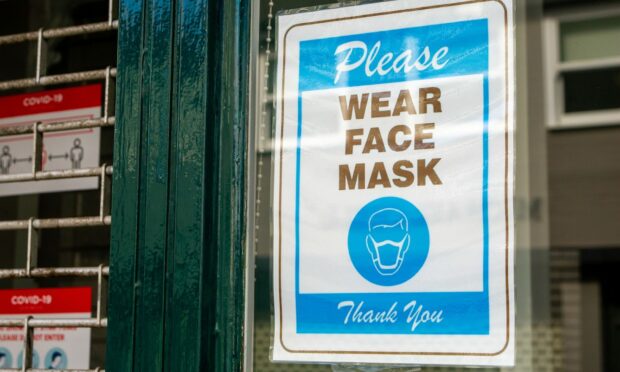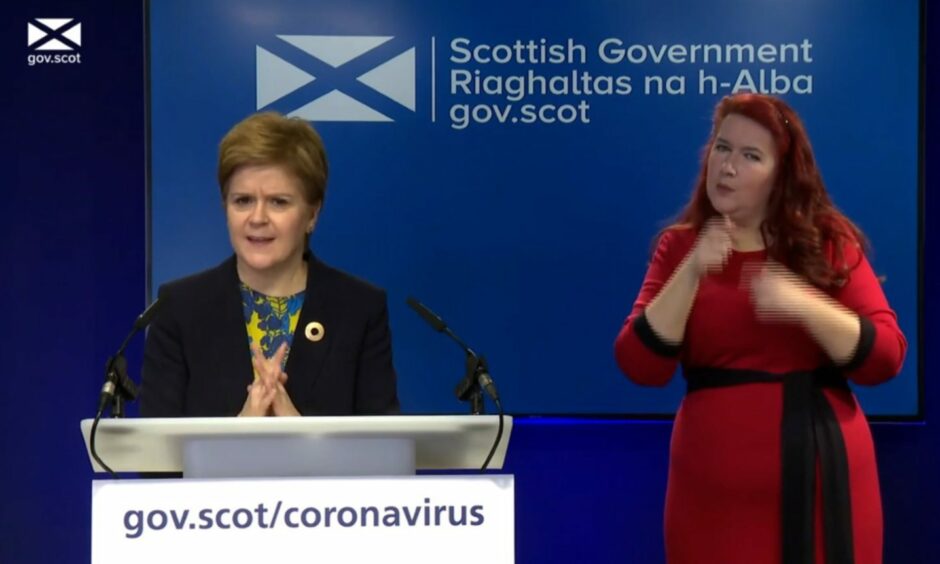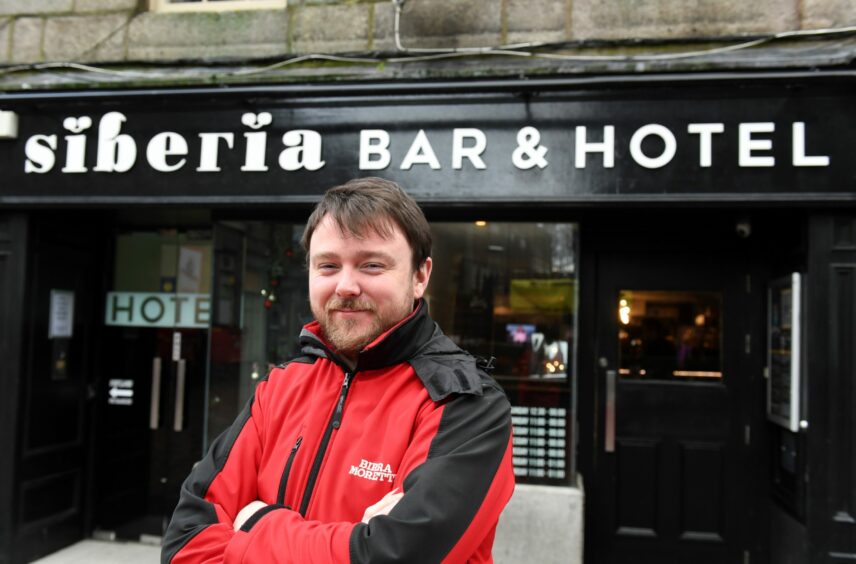Covid restrictions must be dropped to prevent north-east companies shedding jobs or going bust, a new poll has revealed.
More than 40% of businesses will need to cut jobs if existing Covid-19 restrictions are extended or strengthened further, according to a survey by Aberdeen & Grampian Chamber of Commerce (AGCC).
Almost a third (31%) also said they faced a moderate or high risk of collapse should pandemic curbs continue.
The business group has claimed the Scottish Government’s “gamble” with the hospitality sector and high street firms has failed because Covid figures are no better in Scotland despite stricter measures affecting hospitality, nightclubs, home working and events.
The survey, which drew 170 responses, found almost two-third (65%) of respondents to the AGCC poll believe that the restrictions in place are “no longer proportionate” to the risk posed by Omicron.
Respondents also graded the government’s response to the variant as a below average 3.7 out of 10.
Doing everything he can to avoid job losses
Stuart McPhee, director of Aberdeen’s Siberia Bar and Hotel, currently employs 26 people and said he will do “everything possible I can do” before he considers making redundancies.
January is usually a difficult time for the hospitality industry but this year trading is currently down 30% on the same time last year, he said. And the money the Scottish Government has pledged has yet to reach companies’ bank accounts, he added.
“It’s pretty bleak,” he said.
“If you had said to me this time last year we would be in a similar if not worse position 12 months done the line I wouldn’t have thought that would have been possible.”
He said the restrictions are most damaging due to the impact they have on consumer behaviour, and that there should be more planning ahead to support businesses.
“What I would like to see is some rational contingency planning. That’s what we do in business,” he said.
“I’d be remiss to say at this point I will be making people redundant – I will do absolutely everything I possibly can before I reach that point.
“What would help is less hysteria and fear. Let’s be rational and have some proper conversations. We can’t keep imposing restrictions on one or two industries every time this happens.
“We need to know what is plan B, C, D and is the funding ready go to get to businesses instead of waiting 20, 30 days down the line from when funding was announced.”
Scotland has worse rates now despite more restrictions
The case rate per 100,000 population, as published on Sunday evening, was 2,026 in Scotland, compared to 1,924 in England, where fewer restrictions are in place and large events, such as Premier League football, have continued.
Ryan Crighton, policy director at AGCC, said: “Two things are now beyond question; one, that the restrictions currently in place are doing enormous damage to a number of business sectors; and two, that they have failed to make any meaningful difference to case numbers in Scotland.”
‘Gamble has failed’
He added that the latest poll sends a clear message to ministers that the curbs must end on January 17th or earlier.
He said: “The latest data suggests that the Scottish Government’s gamble with our hospitality sector and high streets has failed, despite weeks of warnings.
“We have been calling for ministers to recalibrate their response since before Christmas following the publication of various studies on the severity of Omicron.
“Our position has been that if you are going to close or restrict businesses, then you need to compensate in full for the losses incurred.
“However, it is becoming increasingly clear that the funds simply aren’t available to support companies.
“Therefore, the first minister must announce the end of these damaging restrictions this week. Not doing so places the very survival of many businesses at risk and jobs on the line.
“Where businesses and government now appear to be aligned is on the fact that we need to find a way to live with this virus.
“The exceptional roll-out of the vaccine has put us in a strong position and that new reality needs to start now.”
The first minister must announce the end of these damaging restrictions this week. Not doing so places the very survival of many businesses at risk and jobs on the line.”
First minister Nicola Sturgeon introduced tougher restrictions after Christmas in a bid to counter the threat of the Omicron variant – with these seeing nightclubs forced to close their doors again, while pubs and other places selling alcohol had to reintroduce table service.
Meanwhile, a cap on the number of people allowed to attend events has impacted football matches, and also led to the cancellation of Hogmanay celebrations.
Ms Sturgeon will update MSPs on the impact of restrictions when Holyrood returns from recess on Tuesday.
A Scottish Government spokesperson said: “This is proving to be one of the most difficult winters in the history of the NHS and recent Public Health Scotland analysis confirms Coronavirus (COVID-19) is continuing to increase pressure on the service, hence why temporary public health restrictions were brought in at an early stage.
“The next few weeks are going to be extremely challenging, with the risk of major incidents at health trusts and businesses and public sector services under severe strain due to an increased number of staff off sick or isolating.
“We are all too aware of the impact that COVID-19 has had – and continues to have – on business and the Scottish economy. That is why, to date, we have spent almost half a billion pounds more in support of businesses than the funding we received from the UK Government for that purpose.
“Since the start of the pandemic, businesses have benefited from more than £4.4 billion in support from the Scottish Government.
“Restrictions will never be in place longer than absolutely necessary and the first minister will provide her regular update to parliament on Tuesday.”



